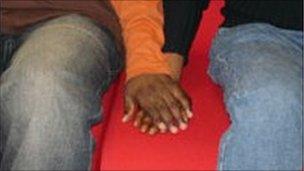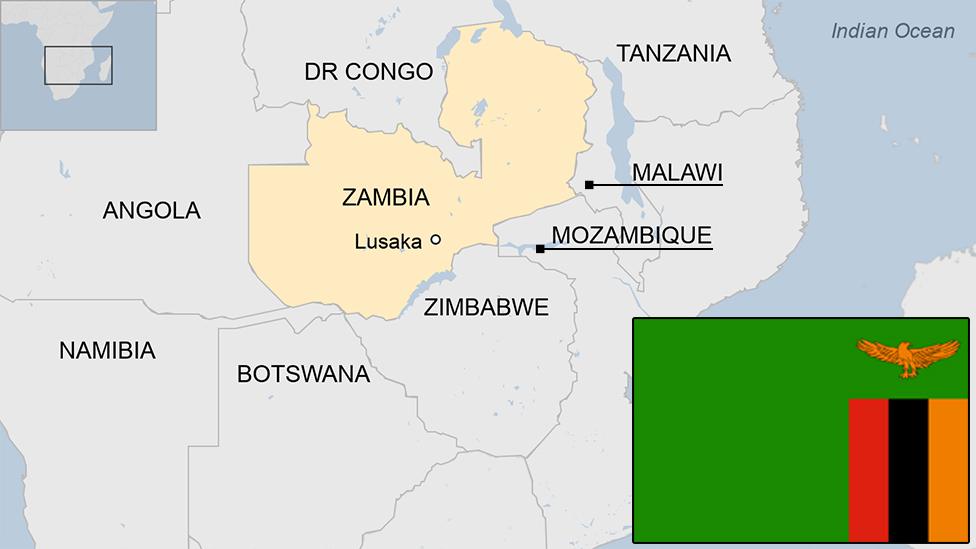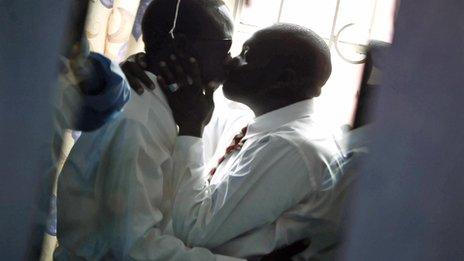Zambia gay rights activist Paul Kasonkomona gets bail
- Published

Homosexual acts are banned in many African countries
A prominent human rights activist has been granted bail in Zambia after he was arrested for appearing on a live television calling for homosexual relationships to be decriminalised.
Paul Kasonkomona pleaded not guilty at the magistrate's court in the capital, Lusaka, to the charges - being idle and disorderly in a public place.
Homosexual acts are illegal in deeply conservative Zambia.
Mr Kasonkomona could face one month in prison or a fine if he is found guilty.
Earlier in the week, South Africa-based campaign group Ndifuna Ukwazi demanded Mr Kasonkomona's release, in an online petition addressed to Zambia's President Michael Sata, external.
He was detained as he stepped out of the studios of the privately owned Muvi TV in the capital on Sunday evening.
Sources at the television station told the AFP news agency that police tried to stop the interview and take Mr Kasonkomona off air but the management refused.
'Advocating homosexual rights'
The BBC's Mutuna Chanda in Lusaka says it was busy court session, with Mr Kasonkomona's wife and father in attendance.
The particulars of charges read out in court said Mr Kasonkomona was in "a public place advocating homosexual rights to be respected in Zambia", he reports.
Mr Kasonkomona's lawyer argued that as his client was being charged with a misdemeanour he should be granted bail.
The rights activist was ordered to pay 5,000 kwacha ($930, £605) and the trial is due to start on 15 May 2013.
In a separate case at the High Court, his lawyers are suing for unlawful detention as he was kept in police cells for more than 48 hours before being charged.
Last week, a group of gay couples attempted to register their marriages but were stopped and the government ordered the arrest of anyone practising homosexuality, AFP reports.
In 2011, both the UK and US warned they would use foreign aid to push for homosexuality to be decriminalised in Africa.
South Africa is one of the few African countries where it is legal.
- Published24 March 2023

- Published7 December 2011

- Published30 June 2011
- Published16 June 2010